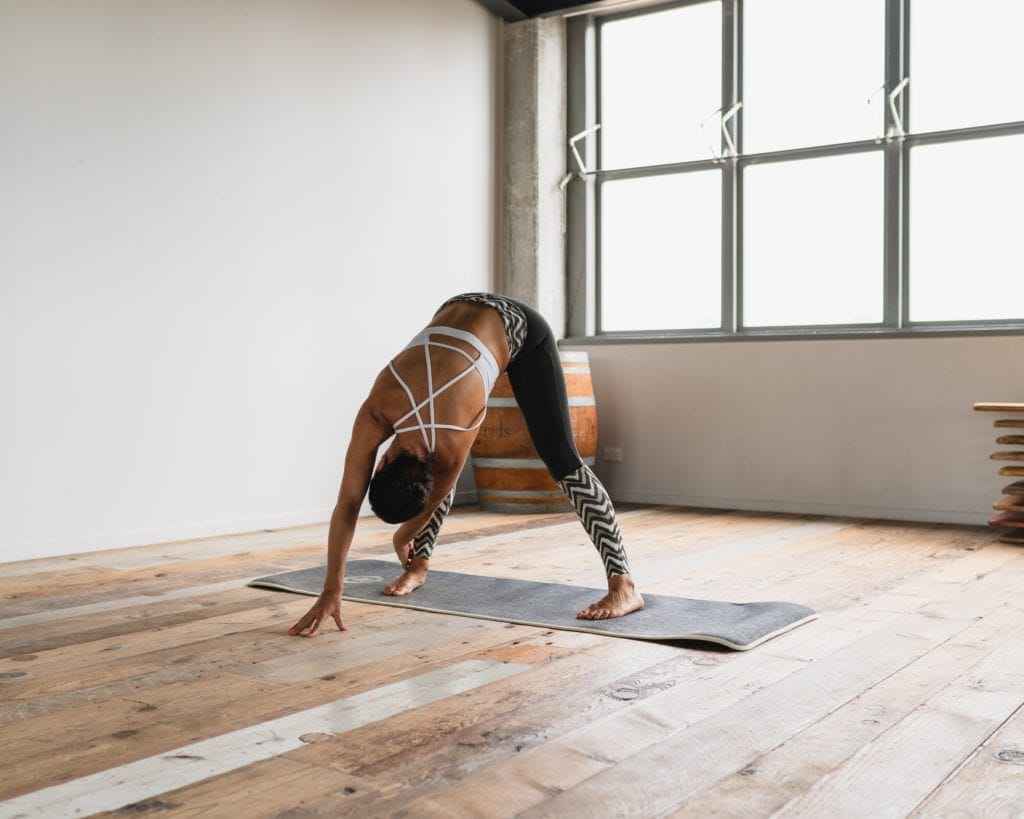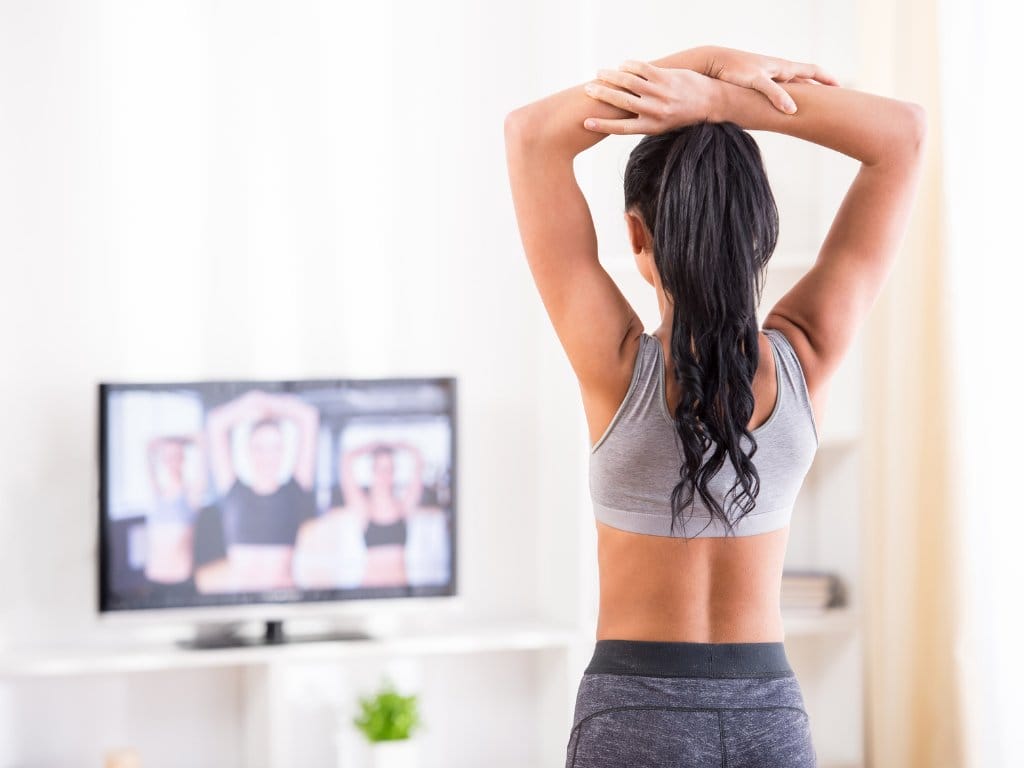6 Tips to Stay Healthy While Staying Home
Many of us are worried about the ongoing COVID-19 situation, experiencing all sorts of anxieties about our health, our loved ones, our finances, and how we are going to cope during this period. These are unprecedented times, and the circuit breaker measures implemented by the Singapore government will drastically change life as we know it. Given that our usual routines will be altered beyond our control, how do we then maintain a sense of normalcy essential for our mental health? If there is just one recommendation that Psychotherapist Sophia Goh could give that would make the greatest impact on your emotional and mental health, it would be to create and maintain a regular routine. Curated by the Tropika Club team.
Table of Contents
- No Time to Read? Here’s a Snappy Summary of This Article
- 1. Make time for movement everyday
- 2. Stay connected with others
- 3. Schedule in quiet time
- 4. Maintain regular sleep and wake hours
- 5. Set out key tasks for the day
- 7. Block off time for self-careHere is the critical step to making self-care work: blocking off time on your calendar for it.
- Featured Contributor: Sophia Goh
- Conclusion
- Meanwhile, Check Out Tropika Club’s Ecosystem of Websites
No Time to Read? Here’s a Snappy Summary of This Article
- Maintain a regular sleep schedule: Aim for 7 to 9 hours of sleep per night and avoid napping too much during the day.
- Eat well and stay hydrated: Choose nutritious foods, limit processed snacks and sugary drinks, and drink plenty of water throughout the day.
- Exercise regularly: Find ways to stay active at home, such as following online workouts, doing household chores, or dancing to your favorite music.
- Manage your stress and emotions: Practice relaxation techniques, such as deep breathing, meditation, or yoga, and seek professional help if you feel overwhelmed or depressed.
- Stay connected with others: Keep in touch with your family and friends through phone calls, video chats, or social media, and join online communities that share your interests or hobbies.
- Limit your screen time and news exposure: Set boundaries for how much time you spend on your devices and watching or reading the news, and take breaks to do other activities that you enjoy.
Here are some of her essential tips for creating and maintaining a regular routine during these times.
1. Make time for movement everyday
Being in a confined space for long periods of time can feel depressing. Whether indoors or outdoors, it makes a big difference to your mood when you schedule time for 30 minutes of movement every day.
Here are some ideas for moving daily:
• Take a walk or jog around the neighbourhood park
• Do some light stretches or yoga exercises
• Try at-home workouts on YouTube
• Find some fun ways to incorporate exercises that you have been doing outside

2. Stay connected with others
Maintaining healthy relationships with others is important for our mental health.
Here are some ideas for staying connected while staying home:
• Organise daily or weekly accountability calls with friends or colleagues
• Hold social gatherings via video conferencing (Sophia’s book club is reading Anger: The Misunderstood Emotion via Zoom this month!)
• Have a Netflix Party with friends
• Stay in touch with friends and family members via phone messaging, video calls, or via social media platforms

3. Schedule in quiet time
It’s easy to turn to our mobile phones and laptops continuously throughout the day, since it will be our main form of communication with the outside world during this period of time. It is important for our emotional and mental health to schedule quiet time for ourselves and disconnect with the outside world from time to time.

4. Maintain regular sleep and wake hours
It’s not a big deal if you wake up late the next day after a night of binge-watching Netflix till late. After all, there is no morning rush hour traffic to contend with, and maybe even no one to check if you are ‘at work’ on time.
However, it is easy for this habit to spiral downwards quickly, and you may find yourself sleeping later and waking up later more and more frequently. Having irregular sleep hours leads to a number of problems, such as difficulties falling sleeping and staying asleep, and also fatigue and difficulties concentrating during the day.
As tempting as it may be to forgo regular routines during this period, try to go to sleep and wake up around the same time every day.

5. Set out key tasks for the day
Having time flexibility is one of the likely benefits of #stayhome. Without having to commute to the office and having someone to tell you what to do and when, it is easy to feel that the days are passing by in a blur. Whether you’re working from home, taking this time to explore something else, or taking a break, set out a few key tasks for your day.
It could be a simple list of 3 to 5 things that you would like to accomplish for the day, such as:
• Read 10 pages of a book
• Call Grandma
• Pack kitchen cabinet
• Send email to Jenny
• Put on a face mask

7. Block off time for self-care
Here is the critical step to making self-care work: blocking off time on your calendar for it.
Self-care is something that rarely happens by chance. It needs to be scheduled in just like anything else that you would like to do. Intentionally block off time in your calendar for exercise, personal reflection, and other things that you would like to do for self-care, such as reading or listening to music.
“For me, time for exercise and my morning routine are the first things that I block off on my calendar every week, even before I schedule in any work commitments. This ensures that I always have some time during the week for self-care, no matter how busy I may be.”
In sum, as we weather the storm given the uncertainty of the COVID-19 situation, keep in mind the importance of creating new routines and maintaining a regular routine during this period of time.
—
If you need to reach out for professional support during this period of time, Sofia Wellness Clinic remains open via online telehealth consultations. Please feel free to contact Sophia or book an appointment here.

Featured Contributor: Sophia Goh
Sophia Goh is a professional counsellor and psychotherapist based in Singapore. She holds a Master of Arts in Counselling and Guidance and is the founder of Sofia Wellness Clinic. She is passionate about helping individuals lead successful, fulfilling and well-meaning lives – one that they would be eager to jump out of bed for. She works closely with teenagers and adults to help them overcome life challenges and flourish as individuals.
Her areas of expertise are in Depression, Anxiety and Stress Management, Anger Management, Life Transitions, Career Counselling, Relationship and Self-esteem Issues. She also works with teenagers and parents on Child and Adolescent Issues, Peer Pressure, Bullying, Academic Stress and Difficult Parent-Child Relationships.
Click here for Sophia’s full bio.
Conclusion
Staying healthy while staying home can be challenging, especially during these uncertain times. You might feel bored, lonely, anxious, or stressed out by the pandemic and its impact on your life. But don’t worry, there are some simple things you can do to take care of yourself and boost your well-being. Here are six tips to help you stay healthy while staying home:
- Stick to a regular sleep schedule. Getting enough sleep is important for your physical and mental health. It helps your immune system, your mood, your memory, and your concentration. Try to go to bed and wake up at the same time every day, and avoid napping too much during the day. If you have trouble falling asleep, make sure your bedroom is dark, quiet, and comfortable, and avoid caffeine, alcohol, or screens before bedtime.
- Eat well and drink plenty of water. Eating healthy foods can give you the energy and nutrients you need to stay healthy and fight off infections. Choose foods that are rich in protein, fiber, vitamins, and minerals, such as fruits, vegetables, whole grains, lean meats, nuts, seeds, and dairy products. Limit your intake of processed snacks and sugary drinks that can make you feel sluggish and increase your risk of weight gain and diabetes. And don’t forget to drink enough water throughout the day to stay hydrated and flush out toxins.
- Exercise regularly. Staying active can help you maintain your physical fitness, improve your mood, reduce stress, and prevent chronic diseases. You don’t need a gym or fancy equipment to exercise at home. You can follow online workouts that suit your level and preferences, such as cardio, strength training, yoga, or pilates. You can also do household chores, such as cleaning, gardening, or laundry, that can burn calories and keep you moving. Or you can dance to your favorite music and have some fun while breaking a sweat.
- Manage your stress and emotions. It’s normal to feel stressed or emotional during these difficult times, but you don’t have to suffer in silence. There are some ways you can cope with your feelings and calm your mind. You can practice relaxation techniques, such as deep breathing, meditation, or progressive muscle relaxation, that can lower your blood pressure, heart rate, and cortisol levels. You can also seek professional help if you feel overwhelmed or depressed. You can talk to a therapist or counselor online or over the phone who can listen to you and offer you support and guidance.
- Stay connected with others. Social distancing doesn’t mean social isolation. You can still keep in touch with your family and friends through phone calls, video chats, or social media. You can also join online communities that share your interests or hobbies, such as book clubs, gaming groups, or fitness classes. Staying connected with others can help you feel less lonely, more supported, and more engaged.
- Limit your screen time and news exposure. While it’s good to stay informed about what’s happening in the world, too much screen time and news exposure can be harmful for your health. It can cause eye strain, headaches, insomnia, anxiety, and depression. It can also make you less productive and less creative. That’s why you should set boundaries for how much time you spend on your devices and watching or reading the news. You should also take breaks to do other activities that you enjoy, such as reading a book, playing a game, doing a puzzle, or learning a new skill.
By following these six tips, you can stay healthy while staying home and make the best out of this situation. Remember that this too shall pass and that you are not alone. We at Tropika Club Magazine are here to support you and provide you with useful information and resources to help you cope and thrive during these challenging times. Stay safe and stay healthy!

Frequently Asked Questions (FAQ)
Q: What are some examples of moderate-intensity and vigorous-intensity physical activities?
A: Moderate-intensity physical activities are those that make you breathe harder and your heart beat faster, but you can still talk while doing them. Some examples are brisk walking, cycling, dancing, or gardening. Vigorous-intensity physical activities are those that make you breathe very hard and your heart beat very fast, and you can’t say more than a few words without pausing for breath. Some examples are running, jumping rope, swimming, or playing soccer.
Q: What are some nutritious foods that I can eat while staying home?
A: Some nutritious foods that you can eat while staying home are fruits, vegetables, whole grains, lean meats, fish, eggs, nuts, seeds, beans, and low-fat dairy products. These foods provide you with protein, fiber, vitamins, minerals, and healthy fats that your body needs to stay healthy and fight off infections. You can also choose fresh, plant-based foods when possible, as they may have more antioxidants and phytochemicals that can protect your cells from damage. You can find some simple, healthy recipes on our website.
Q: How can I set up the home office for optimal posture and comfort?
A: Setting up the home office for optimal posture and comfort can help you prevent back pain, neck pain, eye strain, and other problems that can affect your health and productivity. Here are some tips to set up your home office:
- Choose a chair that supports your lower back and allows you to adjust the height, seat depth, armrests, and tilt.
- Position your monitor at eye level and about an arm’s length away from you. Use a stand or a stack of books if needed.
- Place your keyboard and mouse close to each other and at a comfortable height. Your elbows should be bent at 90 degrees and your wrists should be straight.
- Use a headset or speakerphone instead of holding the phone between your ear and shoulder.
- Take breaks every 20 to 30 minutes to stretch your muscles and change your posture. You can also do some eye exercises to relax your eyes.
Q: How can I practice relaxation techniques at home?
A: Relaxation techniques are methods that can help you calm your mind and body and reduce stress. Some relaxation techniques that you can practice at home are:
- Deep breathing: Breathe in slowly through your nose and fill your lungs with air. Hold your breath for a few seconds and then breathe out slowly through your mouth. Repeat this for several minutes.
- Meditation: Sit or lie down in a comfortable position and focus on your breathing, a word, a sound, or an image. Try to let go of any thoughts or distractions that come to your mind.
- Yoga: Yoga is a practice that combines physical poses, breathing exercises, and meditation. It can help you improve your flexibility, strength, balance, and mental clarity. You can follow online yoga classes or videos that suit your level and preferences.
- Progressive muscle relaxation: This is a technique that involves tensing and relaxing different muscle groups in your body. Start from your feet and work your way up to your head. For each muscle group, tense it for 5 seconds and then relax it for 10 seconds.
Q: How can I limit my screen time and news exposure while staying home?
A: Screen time refers to the time you spend on devices such as computers, smartphones, tablets, TVs, or video games. News exposure refers to the time you spend on watching or reading the news. Too much screen time and news exposure can be harmful for your health as they can cause eye strain, headaches, insomnia, anxiety, and depression. They can also make you less productive and less creative. To limit your screen time and newexposure while staying home:
- Set boundaries for how much time you spend on each device or activity per day. You can use apps or timers to help you track and limit your screen time.
- Choose reliable sources of information and avoid sensationalized or fake news. Check the facts before you share them with others.
- Take breaks every 20 minutes to look away from the screen and rest your eyes. You can also blink more often or use artificial tears to keep your eyes moist.
- Do other activities that you enjoy or that stimulate your brain, such as reading a book, playing a game, doing a puzzle, or learning a new skill.
Q: Where can I find more information or resources to help me stay healthy while staying home?
A: You can find more information or resources to help you stay healthy while staying home on our website https://magazine.tropika.club/. We have articles on various topics related to health, wellness, beauty, fitness, lifestyle, and more. You can also subscribe to our newsletter to get the latest updates and tips delivered to your inbox. You can also follow us on social media to stay connected with us and our community. We are here to support you and provide you with useful information and resources to help you cope and thrive during these challenging times. Stay safe and stay healthy!

Have an Article to Suggest?
Tropika Club is always looking for new and exciting content to feature in their magazine and they value the input of our readers. If you have any noteworthy content or articles that you believe would be a great addition to Tropika Club’s magazine, we are open to suggestions and encourage you to reach out to us via email at [email protected]. By doing so, Tropika Club values your expertise and knowledge in the matter and appreciates your willingness to help. We will review your recommendations and update our list accordingly
Meanwhile, Check Out Tropika Club’s Ecosystem of Websites

Tropika Club Magazine – Tropika Club Magazine is a Singapore-based publication that features articles on a wide range of topics with a focus on local businesses and content for the region. The magazine emphasizes supporting local businesses through its #SupportLocal initiative, which includes coverage of everything from neighborhood hawker stalls to aesthetic clinics in town. In addition to highlighting local businesses, Tropika Club Magazine also covers a variety of local content, including beauty, lifestyle, places, eats, and what’s on in Singapore and the Asia Pacific region.
Tropika Club Deals – Tropika Club Deals is a leading online deals and voucher shopping site in Singapore, offering amazing discounts on beauty, wellness, and fitness products and services. It’s the perfect platform for customers who want to discover the best deals without having to commit to a specific appointment date and time. These deals are available at major beauty stores, facial salons, hair salons, and other brands in Singapore, with no minimum spend required. Choose from guaranteed discounted deals in the categories of hairstyling, hair removal, facial & aesthetics, body slimming, brows & lashes, nails & makeup, massage & spa or fitness & wellness. Tropika Club Deals is also ideal for customers who want to buy vouchers as gifts or to use for the future. So whether you’re looking to save money on your next haircut or want to treat yourself to a relaxing massage, Tropika Club Deals has got you covered with the best voucher and coupon deals in Singapore!




